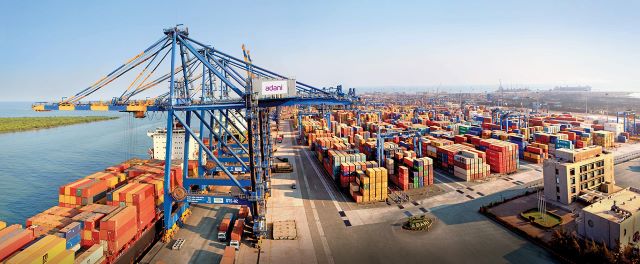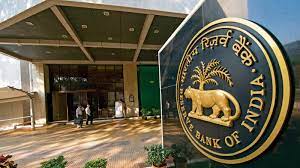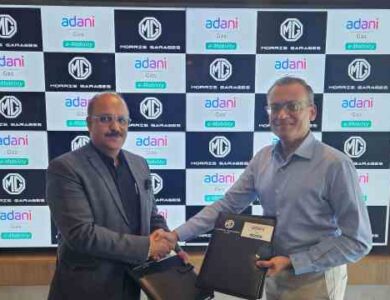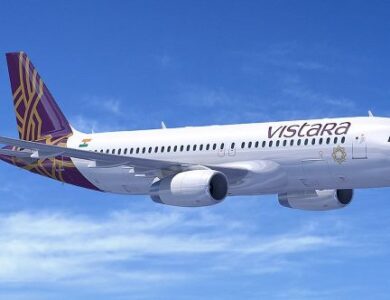With 48% Y-o-Y growth, Adani Ports and Special Economic Zone Ltd (APSEZ) Delivers Record Cargo Volumes in October

- APSEZ records its highest ever monthly cargo volumes of 37 MMT, with ~36 MMT contributed by its ports in India.
- Haifa Port handled marginally higher volume in October vs. the past months
- APSEZ has handled 240 MMT of cargo in the initial 7 months of FY24 vis-à-vis its full year cargo volume guidance of 370-390 MMT
- Logistics business continues to reflect strong momentum with YTD volume growth of 43% Y-o-Y for bulk cargo and 24% Y-o-Y for Rail TEU’s
- Improved port and logistics infrastructure key to India becoming $5 trillion economy.
Ahmedabad, 3 November 2023: Adani Ports and Special Economic Zone Ltd (APSEZ), the largest integrated transport utility in India and a part of the diversified Adani Group, handled 37 MMT of total cargo in October 2023, implying a Y-o-Y growth of 48%. For the first time in the company’s history, the total cargo volume of our portfolio of ports in India surpassed the 35-MMT mark to touch 36 MMT, which is a good 43% Y-o-Y growth. Our Haifa Port in Israel handled over 1.1 MMT of cargo in October, marginally better than the average cargo volume run rate of the last six months. Overall, in the initial seven months of FY24 (Apr – Oct’ 2023), APSEZ has handled 240 MMT of total cargo, which is a good 18% Y-o-Y growth. Across its ports in India, the recorded volume growth on Y-o-Y basis is around 15%.
“The improvement in cargo volumes is testimony to the success of three prong business strategy with encompasses the focus on – higher operational efficiencies, integrated business model with an end-to-end service to our customers, and our long-term strategic partnership model with our stakeholders, including customers” said Mr Karan Adani, CEO and Whole Time Director, APSEZ “. It shows our commitment to using improved efficiencies and technological integrations to drive new benchmarks and achieve customer satisfaction.
During the initial seven months of FY24 (Apr-Oct’ 23), the three broad cargo types – dry bulk, liquids, and containers – have recorded a double-digit YoY growth. The total containers handled by APSEZ in India increased to 5.5 MTEUs (+13% YoY), including 4.2 MTEUs at Mundra alone. The Dry Bulk Cargo volumes have seen an increase of 14%, with this growth primarily driven by iron ore (+260%) and coal volumes (+13%). The jump in the Liquids & Gas volumes has been around 20%. APSEZ consistently works on cargo diversification at all its ports, by adding new cargo types across its ports. During the period under consideration, Dhamra Port has added LNG to its product portfolio, Mudra Port handled soda ash for the first time, Tuna Port added limestone and iron ore, Dahej Port successfully included Copper concentrate and pet coke to its cargo portfolio, while Hazira Port recorded iron ore fines and steel rails for the first time, with Dighi Port adding rock phosphate, and Krishnapatnam Port received its first vessel of pyroxenite.
Our logistics business segment has also delivered record performance, with 24% Y-o-Y growth in rail TEU’s, there taking the total container volumes handled in the initial seven months to ~328,000 TEUs and 43% Y-o-Y growth in bulk cargo volumes with handling of ~10.6 MMTs of cargo.
With around 95% of the India’s trade volumes carried through maritime transport, increase in cargo volume at ports reflects country’s economic prosperity. Therefore, having world-class mega ports is imperative for the Indian coastline. APSEZ has strategically built a string of ports across the Indian coastline along with Inland Container Depots (ICDs) and warehouses, woven intricately with self-owned rakes, covering around 90% of the country’s hinterland. The capability to maintain deep draft ports is enabling APSEZ’s customers to bring larger vessel parcels, thereby lowering their overall logistics cost. The lower logistics costs allow businesses to export goods, boosting domestic economy and raising the employment rate in the country.
In the initial seven months of FY24, APSEZ has already docked ~5,700 ships and serviced 27,300 rakes, including some of the largest ships ever handled by the respective port. In the period under consideration, Mundra Port successfully berthed MV MSC Hamburg, 399 meters long and 54 meters wide vessel, having a carrying capacity of 15,908 TEUs. The port also surpassed its previous record by handling an over-dimensional container/s (ODCs) on a single vessel, M/V CMA CGM Figaro, with 114 units (219 TEUs). Among India’s ports that can handle cape-size vessels with deeper drafts, Krishnapatnam Port berthed its largest vessel having dimensions of LOA – 335.94 meters and Beam – 42.94 meters. Our Dhamra Port, where a new LNG facility has been commissioned in a JV with TOTAL Group, berthed its first LNG-powered cape-sized vessel, MV UBUNTU UNITY. Another port from APSEZ’s portfolio. Kattupalli Port berthed the MV Seaspan Beacon with 10,000 TEUs, surpassing its previous record of handling 8,600 TEUs in a ship. The port also berthed a container vessel with a draft of 14.5m and displacement of 1,28,046 T, surpassing its previous record of 1,21,958 T.
The observed growth from Apr-Oct’ 23 has been contributed by most of the ports in the portfolio. Our flagship port, Mundra, achieved another milestone of handling 16 MMT of cargo in a month, a benchmark for the Indian ports. On YTD basis, Mundra has reported cargo volumes of 102 MMT, which is a good 9% Y-o-Y growth. Busy traffic has also been witnessed at our other key ports as well. APSEZ’s sole port in Orissa, Dhamra, observed 19% Y-o-Y growth on the back of pickup in the iron ore exports from India. Similarly, Gangavaram Port, for which we completed the acquisition in FY23, saw its cargo volumes grow at 13% Y-o-Y in the initial seven months. Two of our terminals, Tuna & Ennore, recorded Y-o-Y cargo growth of 23% and 14% respectively.
APSEZ’s achievement underlines its ability to adapt to fast-paced changes due to global market and geopolitical volatility and continue its journey towards sustainable growth. Improved port infrastructure means better logistics performance and higher seaborne trade and economic growth, key to India becoming a $5 trillion economy.
About Adani Ports & Special Economic Zone Ltd
Adani Ports and Special Economic Zone Ltd (APSEZ), a part of the globally diversified Adani Group has evolved from a port company to an Integrated Transport Utility providing an end-to-end solution from its port gate to customer gate. It is the largest port developer and operator in India with 6 strategically located ports and terminals on the west coast (Mundra, Dahej, Tuna and Hazira in Gujarat, Mormugao in Goa and Dighi in Maharashtra) and 6 ports and terminals on the east coast of India (Dhamra in Odisha, Gangavaram, and Krishnapatnam in Andhra Pradesh, Karaikal in Puducherry, and Kattupalli and Ennore in Tamil Nadu) representing 26% of the country’s total port volumes, thus providing capabilities to handle vast amounts of cargo from both coastal areas and the hinterland. The company is also developing two transshipment ports at Vizhinjam, Kerala, and Colombo, Sri Lanka. The company is also operating the Haifa Port in Israel. Our ports to logistics platform comprising port facilities, integrated logistics capabilities including multimodal logistics parks, Grade A warehouses, and industrial economic zones, puts us in an advantageous position as India stands to benefit from an impending overhaul in global supply chains. Our vision is to be the largest ports and logistics platform in the world in the next decade. With a vision to turn carbon neutral by 2025, APSEZ was the first Indian port and the third in the world to sign up for the Science-Based Targets Initiative (SBTi) committing to emission reduction targets to control global warming at 1.5°C above pre-industrial levels. For more information, please visit www.adaniports.com




